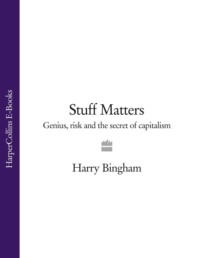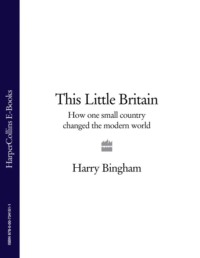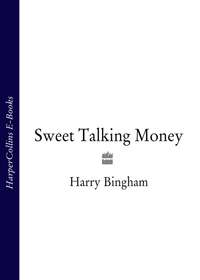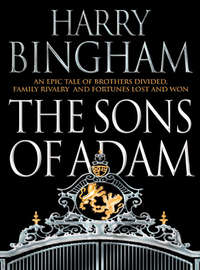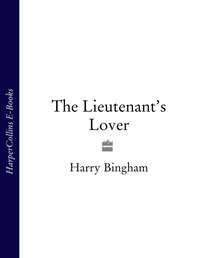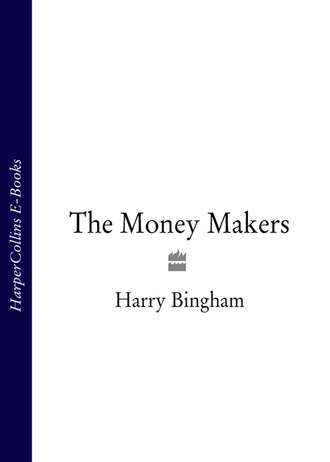
Полная версия
The Money Makers
‘Any questions so far?’
George looked around. Nobody moved. It had been obvious to everybody that Gissings was in trouble, but nobody had ever told them how bad. George could tell that the workforce believed him. But trust was a different matter and the toughest part of the speech was still to come. He felt nervous but committed.
‘So what are we going to do about it? Well, in the long term, if we get there, we’re going to turn Gissings into a thriving, expanding company, with a healthy balance sheet, a bloody good product line and a fat order book. But right now, our aim is to survive and we can’t do that with our costs the way they are. As of today, I am suspending thirty-five of you. Val will read out the names in a moment. I say suspending because I hope to take you back on as soon as I can. But that won’t be much comfort to you because your pay cheques are stopping as of now and in all probability we’ll go bust within a matter of months anyway. I owe you some redundancy money. Some of you, who have been with us longest, are owed quite a lot. Well, you’re not going to get it, because we don’t have it. You can take us to court if you want, and you’ll win. But you won’t get your money because by the time you get your award, this company will have been picked bare. I’m sorry, but that’s how it is.’
Val stood beside him with the thirty-five names. Everybody in the sawmill would go. There was no point in a sawmill, when you could get better quality product delivered more cheaply. On the factory floor, everyone who had looked up and dawdled on George’s first tour of inspection was going. Those who had stayed working were the lucky ones.
‘As for the rest of you, I’m cutting your pay by fifteen percent. If any of you want to give up more than that for the good of the company, then I’ll write your name in gold on the factory gates just as soon as we can afford the paint. I’m not allowed to cut your pay like that. Once again, you can take me to court, and you’ll win. But you won’t get any cash back and you won’t have a job, because the company will be as dead as a doornail. For what it’s worth, I don’t intend to take one penny in pay, until this company has made enough money to cover its costs including interest. And I’m going to work my tits off to see that it does.
‘Are there any questions?’
There was silence from the assembled company. Weak sunshine threaded its way through the dirty plate-glass windows. The yard beyond looked grey and empty. Standing on his desk, George felt exposed and vulnerable, but also renewed. He had said what needed saying, done what needed doing. He stayed standing. ‘Any questions at all?’
The silence lasted half a minute or so. Then somebody at the back of the room cleared his throat.
‘Why the fuck don’t you just write a cheque to the fucking bank for the fucking money and leave us poor bastards alone?’
15
‘Now try without the rails. Use your stick if you need to.’
The nurse was patient and kind. Helen Gradley let go of the wooden rail that ran along the wall towards the mirror and stepped forwards, her stick thrust in front of her, not for support so much as proof that the ground in front continued solid. One step. Two step. Three step. The nurse and Josephine counted them out as Helen watched her reflection grow larger.
‘Well done, Mum. You can do it. Four more steps.’
It was an encouragement too far. Helen leaned forwards, letting the point of her cane slide away from her. There was a moment of suspense as competing forces tussled for supremacy, then gravity played the ace of trumps and Helen Gradley and her stick fell crashing to the floor. She began to cry. A rising smell warned that her bladder control had come tumbling down as well.
‘Oh, dear,’ said the nurse. ‘Bumps-a-daisy. Best call it a day.’ To Josephine she added: ‘You often get incontinence with a stroke, I’m afraid. I’ll get some stuff to clean up.’
She left the room, briskly efficient. Josephine let her mum continue sitting, just rubbed the back of her neck for reassurance. Her mother’s recovery was proving painfully slow. No one at the physical therapy centre had suggested it directly, but Josie caught an undertone which hinted that Helen could be trying harder. She didn’t disagree. One of the doctors had proposed a further trial of antidepressants and Josephine had readily agreed.
She looked at her watch. Time to go, back to her job as secretary in a big London bank. Her employers were amazingly generous, giving her time off to be with her mum when she needed it, but there were limits. Josie picked up the cane from the floor and tossed it from hand to hand. Part of her handled it as it was meant to be handled: a cane, a mobility aid, a support for the weak. But part of her felt the stick as a man might feel it: a hockey stick, a baseball bat, a sword.
Winter 1998–99
Two months into the training programme. Long days of economics, bond maths, computer analysis. Evenings of study and developing friendships. Manhattan cold, but getting colder. The park empty of leaves, stores crowded with merchandise. The weekends are full of skating, window-shopping, Christmas lights, phone calls home.
It is 14 December 1998. There are 942 days to go until Bernard Gradley’s deadline.
1
Could it be that Matthew was falling in love? If so, it would be a first. Until now, Matthew’s love life had been like dining off sushi: plenty of variety, but nothing more than a mouthful. And now? Well, it was too soon to say and they were still just friends, but Sophie was charming, clever, ambitious, cool-headed and she liked Matthew. What was more, she was beautiful and dressed like a dream, enough to satisfy – more than satisfy – Matthew’s not inconsiderable vanity. He wooed her carefully, attentive but not pushy.
Tonight he was taking her to a trattoria in Little Italy. He’d make his move then. And for the first time in his prolific romantic career, he really felt anxious about the outcome. Could it be love?
Perhaps love or perhaps just nerves. Because before evening came, Matthew was to face the toughest test of the course so far, when the first of the trading games took place. Calling them games was a joke, really. They were more serious than any exam. You’d never make an outstanding trader without knowing the bond maths, the economics and all the rest of it. But if you got one hundred percent in all of that and still couldn’t trade, you could kiss your dream home in Long Island goodbye.
The game was simple enough. The students were divided into three groups. One group were investors, the second salespeople, the third traders. The investors each had a pile of fictional money and fictional government bonds. Their aim was to invest their assets to make as much money as they could. The investors worked alone and competed against each other.
The salespeople and traders worked in pairs. Each pair represented an investment bank. The banks started with no government bonds and just a small amount of money. Their object, too, was to make money. As much as they could, as fast as they could. These are the rules of Wall Street.
As it happened, Matthew was to be a trader, Sophie a salesperson. They teamed up, to Matthew’s delight, calling themselves the Banque Entente Cordiale. They were competing against each of the twenty or so other investment bank pairs in the game.
There were just a couple of other rules. Investors were not allowed to trade with each other, only with the banks. Suppose, for instance, that Fareshti (the podgy oil princess who played an investor) wanted to buy a particular government bond – say, the bond falling due in 2017. She’d need to contact a number of salespeople to check the price they were selling at. When she found a good price, she’d agree the deal and scribble out a ticket to record it.
And where did Sophie get her prices from? Simple. She got them from Matthew. And where did Matthew get his prices? Simple again: he made them up. But when Matthew quoted a price, he had to try to pick a price fine enough to win the deal, but fat enough to leave a margin for the Banque Entente Cordiale. Remember: any trading floor is just a glorified bureau de change. If Matthew thought he could sell a bond at $103, he’d be happy to buy it at $102. He didn’t care that he was only making a buck. The biggest houses on Long Island belong to people who just skim a few tenths of a cent on every trade. They just do a lot of trades.
There was one other ingredient. A course tutor sat by a flip-chart, and every now and then turned a page to reveal a news item. It might be about consumer spending, an election result, or the death of a president. With each announcement, the market reacted. Investors who were sitting pretty one moment could watch their assets tumble or soar as prices shifted.
And that was that. No other rules. At the end of the game, everyone’s assets were counted up. And, as the T-shirt philosophers of New York put it, he who dies with the most wins. Roses and champagne were awarded to the winning investor and the winning investment bank. There were no penalties for failure, except one. The penalty was that the trading games were the most important tests of the course, and the course had a failure rate of one in three. The Lion of Wall Street would not go hungry.
The game was about to start. Sophie and Matthew had worked out some ground rules, but it wasn’t like an exam, you couldn’t revise for the future. Matthew put his mouth to Sophie’s ear.
‘Good luck,’ he whispered.
‘Bonne chance, Monsieur Gradley. Good luck.’
A whistle blew and the game began.
The students were arranged in three rows. The investors sat along one side of the room, while the salespeople sat in another row down the middle. The traders sat opposite their salespeople, but they weren’t required to stay there. If they wanted to get up, to mix with the other traders in search of a deal, they were welcome to do so.
At first though, there was no movement and not much noise. The students had been brought up to be polite and, for a while, decorum reigned. A few investors, thinking they should invest some of their cash in bonds, asked a couple of salespeople for prices. The salespeople sorted out a price with their traders. Any haggling was done with apologies and laughter. The traders stayed seated.
Then the tutor in charge of the flip-chart turned a page. The announcement was visible to everybody. GREENSPAN BULLISH ON INFLATION PROSPECTS. Alan Greenspan was the head of the powerful US Federal Reserve. If he thought inflation would stay low, then bonds should rise as investors bought into positive economic prospects.
The traders quickly changed the prices they were giving their salespeople, but not all traders thought alike. The quiet equilibrium changed. Investors started shouting out their requirements to the salespeople. The noise increased.
The salespeople now asked their traders for prices several times a minute. The traders knew that prices were constantly shifting and worried about getting out of line. They began to leave their seats to check out what others were doing or to deal directly with other traders. When their salespeople needed a new price, they had to yell to get their attention. The volume of trades increased. The room grew noisier.
Then, unannounced and unnoticed by half the room, the flip-chart was turned to reveal another message. CONSUMER SPENDING SIGNIFICANTLY HIGHER THAN EXPECTED. So perhaps Greenspan had been wrong. Perhaps inflation was more of a risk. Bond prices needed to come down again. By how much? There was no right answer, no wrong answer. There was only the answer of the market.
Sophie shouted at Matthew to check he had seen the message. He had, but he hollered his thanks for the tip-off. Sophie was taking more orders now, building up the flow of deals. It was good business, but demanding. Matthew wanted to avoid sitting on a big stack of bonds in case he was caught short by a change in the market. So for every deal that Sophie brought him, he had to do one or two more to square his position again.
The flip-chart messages came faster now.
‘Give me a price to buy the 2017s and a price to sell the 2012s,’ shouted Sophie.
Matthew thought on his feet. Investors didn’t wait long when the market was moving so fast.
‘I’ll buy the 2017s at $99. I don’t want to sell the 2012s, because I’m short of them as it is. Ask $105 for them. No one in their right mind will take that price.’
Matthew knew that a decent investor could get the 2012 bonds much cheaper from elsewhere.
‘OK. 2017s to buy at $99. 2012s to sell at $105.’
Matthew raised his thumb in agreement. Another rule of theirs: always confirm the price. Other pairs hadn’t agreed to do this and got into arguments as misunderstandings spread.
Meanwhile Matthew plunged back into the throng of traders. By acting fast he could buy bonds off one trader and sell them back to another at a slightly higher price. It was tough to do. Decent traders understood the market and cut out the middleman, but not everyone was that slick. Matthew noticed a couple of the Japanese in particular were struggling.
He tried to remember their names. Sophie prompted him: Takashi and Atsuo. Matthew greeted them warmly amidst the frenzy and made some little joke about the swelling chaos. He stayed close and helped them out a couple of times in small ways. In the bond markets, real or fictional, no friend is better than a stupid friend.
He was interrupted again by Sophie.
‘Matthew. We’ve done both deals. Bought 100 lots of 2017s at $99. Sold 200 lots of the 2012s at $105. I’ve updated the accounts.’
Matthew broke off what he was doing and leaped across to Sophie’s desk.
‘Jesus, Sophie. Who did these trades? The 2012s are trading at $100. We’ve made $5 clear profit on each bond.’
In a game where the profit margin seldom rose above a dollar, $5 was wealth indeed.
‘Fareshti,’ said Sophie. ‘I think she’s finding it tough.’
They looked across to Fareshti, who was sitting bolt upright in her chair. Her face was pale and her eyes open in a blank stare. Her pad of paper lay face down on the desk and she clearly hadn’t a clue what her position was. While Matthew and Sophie watched, she pulled off her heavy gold earrings and laid them next to the thick gold necklace which already lay on the desk. She looked as though the jewellery had been weighing down on her, crushing her even.
‘I spy with my little eye an investor who needs the help of the Banque Entente Cordiale,’ said Matthew.
Sophie glanced at him.
‘That’s not fair. She doesn’t know what she’s doing any more.’
‘I don’t know about you, but my nearest and dearest forgot to provide me with a few billion dollars’ worth of oil. I propose to earn my living as a trader instead.’
Sophie half-smiled in incomplete agreement. ‘C’est vrai. D’accord. But I don’t like it.’
She called to Fareshti, who woke up pleased to hear a friendly voice amidst the din.
‘Give me your pad,’ said Sophie. ‘Let me help you get up-to-date.’
A grateful Fareshti tossed her pad over to Sophie who bent over it with her calculator. The princess, meanwhile, put her hands to her neck and massaged it, staring down at the heap of gold in front of her. Drilling a few metres down into the desert sands was simpler than this. But her parents thought she should have a Western business education and this was it. She watched Sophie gratefully.
After a while, Sophie rose and handed the pad back to Fareshti, who held it uncertainly and without looking at it.
‘I think you may have too many of the long bonds and you’re short of the shorter maturities,’ said Sophie. Fareshti was totally blank.
‘I think you should sell 150 units each of the 2012s and 2017s and buy a similar number of 1999s and 2005s. We can do that for you if you want.’
Fareshti nodded. Sophie was so kind and she didn’t shout. Sophie turned back to find Matthew who was lost again in the hubbub.
‘Fareshti would like …’ Sophie began.
She was hinting that Matthew’s prices could be way off market. He pretended to think deeply and called back some prices which would allow him $10 of profit on each bond.
‘But that’s the very best I can do,’ he yelled. ‘And I can’t hold those prices for long.’
Fareshti was oblivious to the charade. She nodded through the trades which Sophie proposed and let her write them down. The princess removed her thick gold bangles and watch and laid them down on the mounting pile of gold. She massaged her wrists.
The game went on. The flip-chart turned. The chaos rose to a crescendo and hung there.
Fareshti mostly held back from doing any more trades. But every now and then she shook herself and did another trade as though to prove she could play the game as well as anyone. Every trade she did, she did through Sophie. Every time, Matthew took $10 or $15 profit on each bond. At one point, Sophie protested.
‘We’ve done enough.’
‘Sophie, for Fareshti this is only a game. For us, it’s life or death. You won’t be feeling sorry for her if you’re kicked off this course for underperforming. Besides, Fareshti’s not the only one to be taken for a ride here.’
Matthew spoke with some certainty on this last point. Takashi-san and Atsuo-san were also contributing handsomely to the Banque Entente Cordiale’s profits.
‘OK. But remember, we’re already doing very nicely. We don’t need to gouge the last dollar.’
Finally, three hours after the game had started, a second whistle blew. Game over.
A stunned Fareshti put her hand to her head and withdrew her last remaining ornament, a heavy gold hair clip. It joined the rest of the glittering pile on her desk. Otherwise, she hardly moved.
The course tutors gathered up all the trading tickets, which would be processed by a clerical team over the next few hours. Around four o’clock, the results would be announced and prizes awarded. But Matthew and Sophie already knew their result. They had started the game with $5000. They had ended with $32,420.
And Sophie, as Fareshti’s trusted advisor, knew her result too. As an investor, Fareshti had started the game with a much larger amount of money – $100,000 to be precise. She had finished with $68,920. The Banque Entente Cordiale had by no means pocketed all of Fareshti’s missing $31,080, but it had had more than its fair share.
Takashi and Atsuo left the room congratulating themselves on their first taste of trading. On their way out, they took care to thank Matthew profusely for his help. Neither of the two Japanese was aware that they had lost considerably more money than they had started with. Nor were they aware how much of it had ended in Matthew’s pocket.
As the room cleared and the noise died away, Matthew and Sophie looked at each other properly. It seemed ages since they had done more than glance at each other or yell messages across the din.
Even after three hours of mayhem, Sophie looked flawless. Even in the thick of the game, she had kept her cool. She had dealt calmly with the questions that flew at her from all sides, while at the same time accurately updating the bank’s accounts. She had been the only person in the room, male or female, to have kept their jacket on throughout the game. But now the turmoil was over, she threw her jacket on to the ground beside her. She leaned her head back as far as it would go and ran her hands through her hair. Then she whirled forwards again and grabbed Matthew by the arms.
‘We’ve won, Matthew. I think we’ve won.’
‘I think we have.’
She stayed holding on to his arms. Matthew moved his hands gently, ever so gently, to her waist. Her lips parted, but not in reproof.
They kissed. If the whole world had folded away around them, they wouldn’t have noticed or cared. They kissed again and again.
‘Oh, Mrs Gradley. We must win more often.’
‘Indeed, Mr Gradley, I think we should.’
The Banque Entente Cordiale did win the champagne and the roses, notching up $11,250 more than its nearest rival. Scott Petersen, the tall Californian, was the winning investor, with $121,870. The worst performing investor was Fareshti Al Shahrani. Her eyes were full of tears, but she sat upright and proud, as a princess should. She continued to believe that Sophie had rescued her from a worse fate, and she thanked her again as the class disbanded.
Matthew and Sophie did not visit Little Italy that night. They returned to Matthew’s apartment, called out for pizza and celebrated their win in a way that satisfied even Matthew’s most ardent dreams.
2
Zack burst into Hanbury’s office. Hanbury, who was married, was on the phone to his mistress and was less than pleased to be interrupted. He waved Zack out of the room, but Zack, typically, took this as a signal to sit down. Hanbury finished his call abruptly, ‘Look, I’ll see you at the opera tonight. Don’t be late,’ then turned to Zack. ‘What do you want?’
‘I’ve got a way to rescue the Aberdeen Drilling deal. I think we can get back into it.’
‘We’ve already lost. The deal’s over. And I don’t want you bursting in –’
‘Yes, but we bid too low. I know it’s late, but if we came back with a bid, say ten million higher, even twelve –’
‘Oh, don’t be stupid. We’ve lost. The other guys won. Our fee went down the pan. It’s over. Now, will you –’
‘But you haven’t heard my idea. Listen. Tominto Oil lost a lot of money drilling unsuccessfully for oil in Nigeria. In total, it threw away sixty million bucks without tax relief. Aberdeen Drilling, on the other hand, has a profitable subsidiary out there –’
‘I don’t want to know. Shut up and get out.’
‘What do you mean, you don’t want to know? I’m bringing you the solution here.’
Hanbury had a quick temper and Zack’s mistimed intrusion guaranteed a vintage display. The senior banker stood up, incensed.
‘This is the last time I’m going to tell you. The deal is dead and I don’t need your kindergarten tax scams. Now get out of my room and stay out.’
Zack had worked hard on his tax idea. His concept was that under Nigerian tax laws, Tominto’s losses could be used to offset Aberdeen Drilling’s profits. After intensive research, he was pretty sure it could be done, and had fondly imagined that Hanbury would be only too pleased to get back into the race. Zack was suddenly angry. Angry, and out of control.
‘Jesus Christ! I come in here with a good idea – an idea to save a deal and earn a fee – and you are too pompous, too arrogant, too fucking stupid to even hear it. I don’t know why I bothered.’
Zack turned to go, but Hanbury flew to the door and flung it shut. Hanbury put his face a couple of inches away from Zack’s and hissed at him.
‘How dare you say that? How dare you? If you want to continue another day in this bank, you will put a letter of apology on my desk by nine o’clock tomorrow morning. A full and complete apology. If I am satisfied – if I am – then we will talk with personnel about getting you transferred to an area where you won’t come into contact with clients, because I’m damned if I’ll ever trust you with a client again. Is that perfectly clear?’
If Zack had been able to think clearly, he would have been best advised to apologise profusely, to beg forgiveness on his knees if he had to. Piers St George Hanbury was Coburg’s most successful dealmaker, and whatever he wanted, the bank would give him. But, as Sarah Havercoombe for one could testify, Zack wasn’t the sort to think clearly when he was angry. He leaped to Hanbury’s desk.
‘I’ll give you a letter of apology, right here and right now.’



